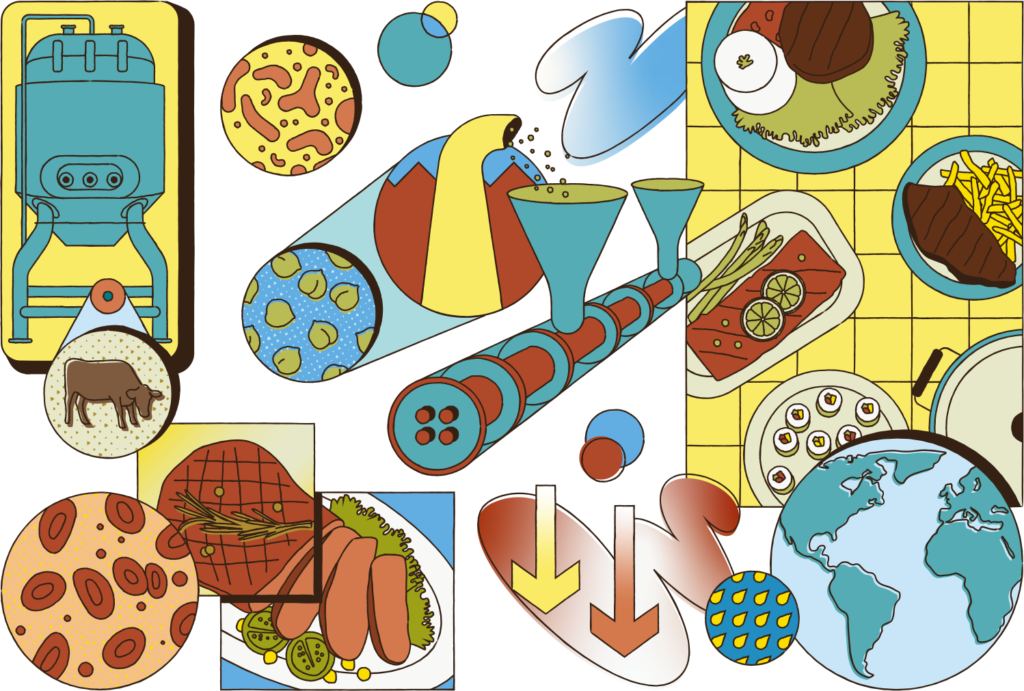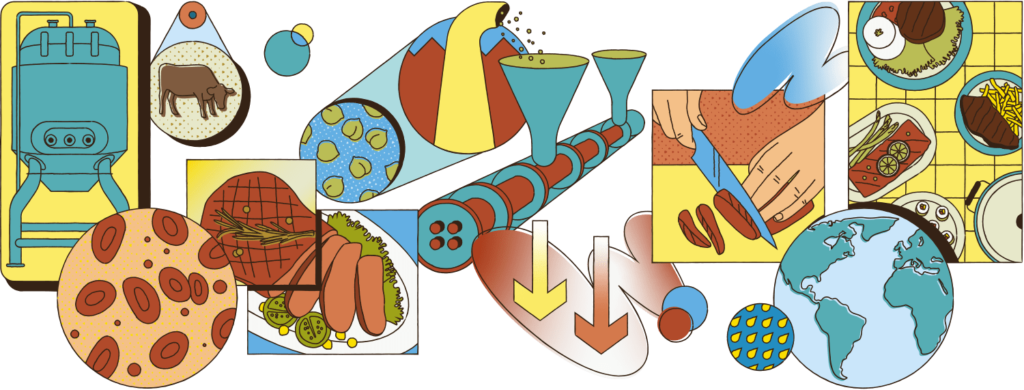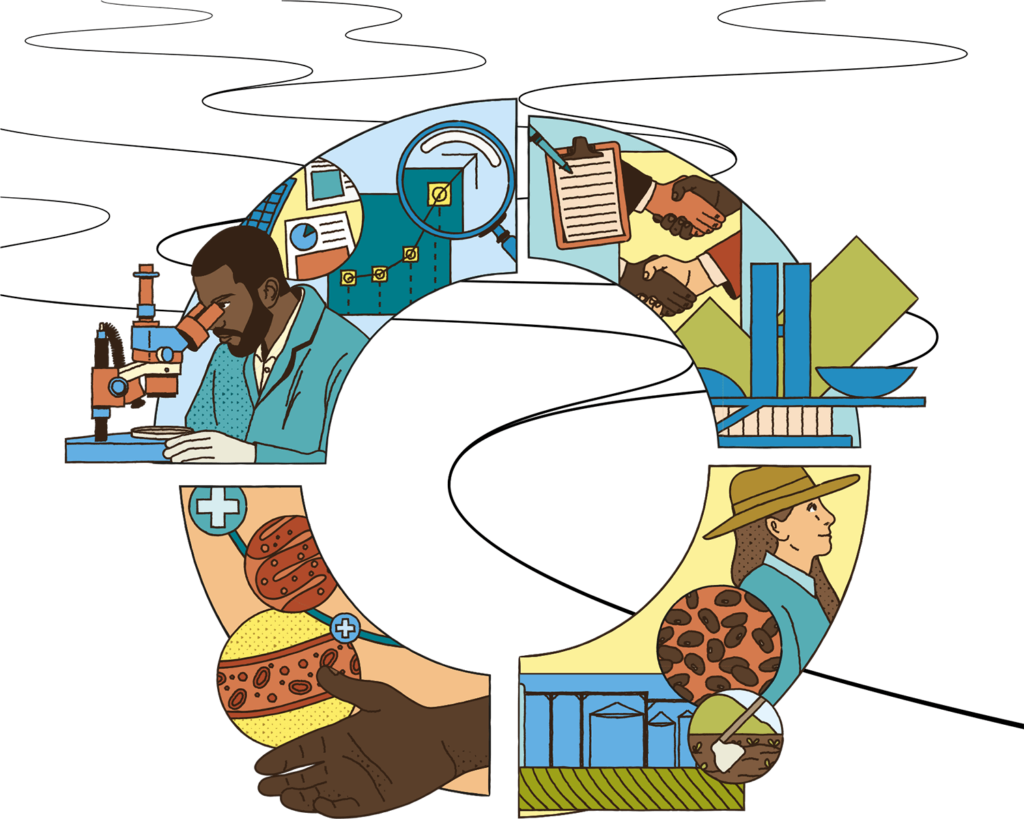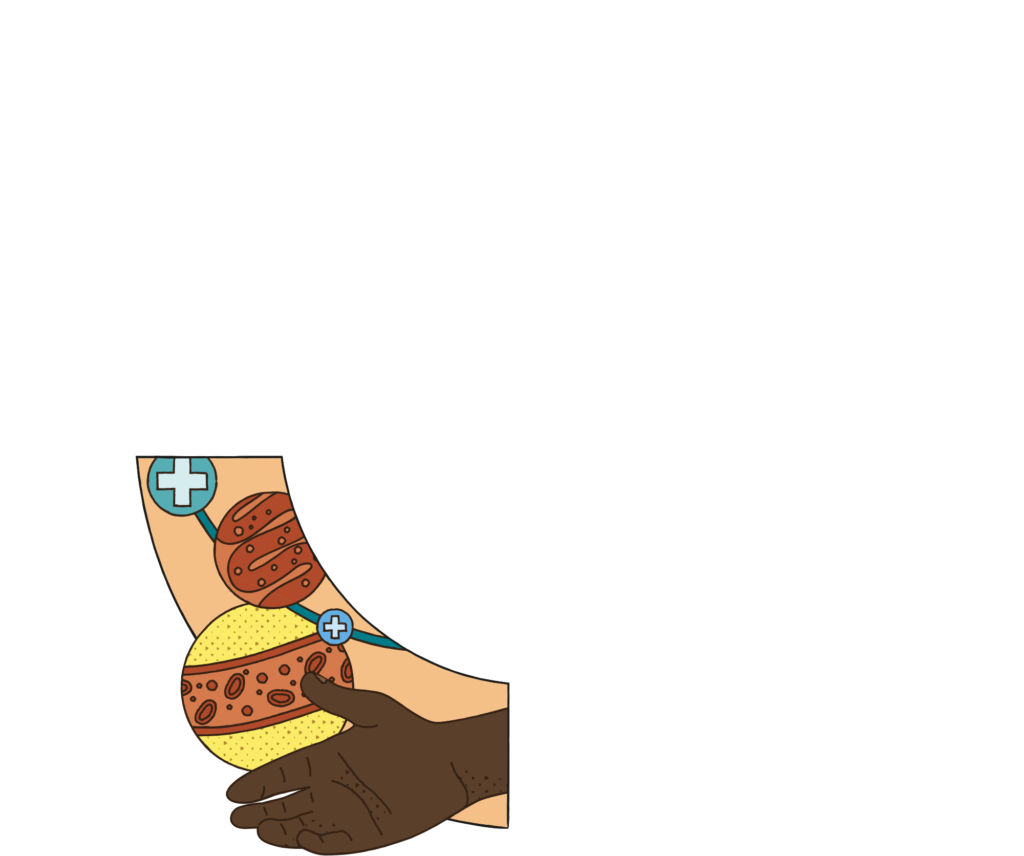Throughout 2024, GFI Brazil surveyed the main gaps that hinder the growth of the alternative protein sector. In this report, we are excited to share initiatives that seek to unlock investments, support innovation ecosystems, foster research, influence public policies, inform the media, and create an environment conducive to the advancement of the sector.
Highlights
in numbers
- 48% in high-relevance news outlets;
- 97% with a positive tone;
- R$ 1.7 MM in editorial value.
The plant-based market achieves its first billion: what’s next?
But what causes these challenges, and how can we solve them? The LAMPADA project (Survey and Analysis of Improvements in Alternative Proteins and Development of Actions) sought to answer these and other questions. After interviewing 40 experts from 37 public and private institutions in the sector, GFI traced bottlenecks at different points in the value chain—including production, distribution, regulation, price, and sensory similarity—that hinder sustainable market growth.
Source: N.OVO
Source: The New
100% national plant-based
The potential of algae
Beans: Brazil’s favorite
Support for farmers
Technological routes
Source: N.OVO
Brazilian plant-based consumers
Nutritional characteristics
Source: Impossible Foods
Safety and quality
Source: The New
100% national plant-based
The potential of algae
Beans: Brazil’s favorite
Support for farmers
Technological routes
Source: N.OVO
Brazilian plant-based consumers
Nutritional characteristics
Source: Impossible Foods
Safety and quality
“Brazilians want to consume more plant proteins, but they do not want to pay more for it or give up the taste and convenience of the traditional products they are used to.”
Série de vídeos do
Programa Biomas
Biomes Program video series
Rational optimism continues to guide decision-making in the cultivated meat market.
Understanding the technology itself is also a challenge, which is why GFI Brazil produced an animation that facilitates a deeper understanding of cultured/cultivated meat. We also created an FAQ aimed at democratizing knowledge on the subject and explaining key safety and health concerns.
Source: Aleph Cuts
Participation in congress on cultivated meat
Industrial biotechnology
Visit to UFMG laboratories
Fostering scientific research
Participation in congress on cultivated meat
Industrial biotechnology
Visit to UFMG laboratories
Fostering scientific research
Fermentation can enrich the alternative protein industry, and Brazil is almost ready to invest.
Fermentation is a key technology for enhancing the sensory characteristics of plant-based and cultured meat, producing primary protein sources, or even obtaining flavors, enzymes, and fats, for example.
Source: Meati Foods
Source: Meati Foods
Technical publications
Source: Chunk
The potential of fermentation
• Diversity of microorganisms;
• Wide availability of substrates;
• Adaptation of already established companies;
• Use of agro-industry wastes;
• Pre-established regulation;
Plans for 2025
Source: Aqua Cultured Foods
Strengthening the alternative protein ecosystem is essential to train the new generation of professionals and academics who will work in the sector.
Visit to the CIT in Rio de Janeiro
Visit to the CIT in Rio de Janeiro
Survey and engagement of technology hubs
Event in Goiânia
Local events and collaborations
Coordination initiatives
Guide for Startups 2024
GFI Brazil-funded research award
Alt Protein Project
Visit to the CIT in Rio de Janeiro
Survey and engagement of technology hubs
Event in Goiânia
Local events and collaborations
Coordination initiatives
Strategic Alliance: We are in an initial +negotiation with a Brazilian Science and Technology Institution (STI) to prioritize alternative proteins, facilitating fundraising, shared infrastructure, events, and incubation programs.
Guide for Startups 2024
GFI Brazil-funded research award
Alt Protein Project
ONLINE COURSE
Tópicos Avançados sobre Proteínas Alternativas
Attracting public investment and creating pro-innovation regulatory frameworks
Alternative proteins are currently recognized as one of the most efficient climate solutions, in addition to having a major potential to provide economic development for Brazil. However, greater public sector support would provide a major opportunity for expansion of research support and new product development. Since 2018, thanks to the enormous support of our donor community, we have funded more than US$ 13 million in open-access research projects in 17 different countries and provided input for regulatory frameworks around the world.
Partnership with the Araucária Foundation
Partnerships with Research Support Foundations (RSFs)
Expansion of the partnership model
Cooperation agreements and legislation
Partnership with the Araucária Foundation
Partnerships with Research Support Foundations (RSFs)
Expansion of the partnership model
Cooperation agreements and legislation
Read the articles in partnership with JOTA, a digital news platform that provides in-depth coverage of Brazil’s political, legal, and regulatory landscape, on the regulatory agenda for alternative proteins in the Brazilian government:
Confira os principais avanços regulatórios ocorridos em 2024.
Presentation of Bill 3357/2024
Bill 3,357/2024
State Legislation
Regulatory Framework
GFI and Mato Grosso
GFI and Amazonas
Learn more about the main regulatory advances in 2024.
Presentation of Bill 3357/2024
Bill 3,357/2024
State Legislation
Regulatory Framework
GFI and Mato Grosso
GFI and Amazonas
From Baku to Belém: the fate of the climate will be defined at COP 30
Sustainability of the alternative protein sector


We maintain internal
operational excellence
We implemented a new feedback framework and an Individual Development Plan (IDP), both of which promote career growth and goal clarity. Leadership training advanced to the second phase, preparing for team expansion in 2025. We also adapted our financial advisory to optimize operations and reinforce integrity.
You can help GFI transform the future of food
As an international network of nonprofit organizations powered by philanthropy, GFI accelerates innovation to make alternative proteins delicious, affordable, and nutritious. All over the world, we work alongside scientists, businesses, and policymakers to transform the food system—building a safer and more just future for everyone.
GFI relies on donations to fuel our work. These contributions have a multiplying effect: while private investments benefit individual companies, donations empower the entire ecosystem through open-access data, insights, and research. With this support, researchers can explore strategic areas that private investors would not prioritize, providing key insights for reimagining protein.





